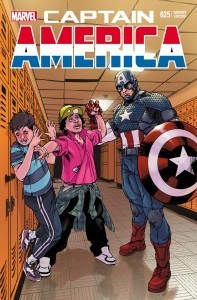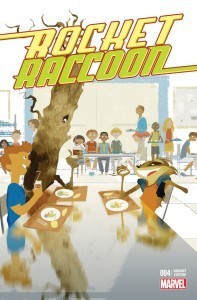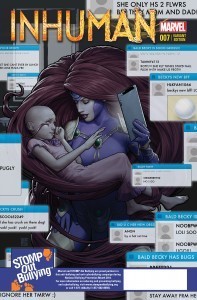Heroes and bullies
 One of the main characters in FANDEMONIUM, my novel about the comics business and comics fans, is a bullied 12-year-old named Fred. In the book I write that in his darkest moments, Fred likes to imagine that his favorite comic-book superheroes are his friends, “who would stand by him even though everybody else hated him: his mother, his teachers, the other kids.” I think many of us have felt like that at least once.
One of the main characters in FANDEMONIUM, my novel about the comics business and comics fans, is a bullied 12-year-old named Fred. In the book I write that in his darkest moments, Fred likes to imagine that his favorite comic-book superheroes are his friends, “who would stand by him even though everybody else hated him: his mother, his teachers, the other kids.” I think many of us have felt like that at least once.
Fred isn’t the only bullying victim in FANDEMONIUM. Another protagonist is physically abused by his gay lover, and a supporting character drunkenly recalls the time his older brother locked him in a closet for hours. One of life’s sad truths is that even after we’ve grown big and strong, bullies sometimes still confront us — only they’ve moved from the schoolroom to the boardroom, or even your own bedroom.
So when I had the chance earlier this week to report for TODAY on the special variant covers Marvel Comics is putting out next month to raise awareness of bullying, I leaped at it. Featuring such popular characters as the Hulk, Captain America and Marvel’s newest box-office idols, the Guardians of the Galaxy, the variant covers, which Marvel produced in coordination with the national organization STOMP Out Bullying, are vivid evidence that Fred isn’t the only kid who ever wished for superhuman allies against his oppressors.
The stark Captain America cover, in which Cap intervenes in a locker-room beating, is virtually a literal illustration of Fred’s wish-fulfillment fantasy in FANDEMONIUM. But the Rocket Raccoon cover, portraying two of the freakish Guardians of the Galaxy joining a boy at an isolated cafeteria table, is almost uncanny: It echoes a scene in the novel where Fred sits by himself at a convention snack bar (just as he sits alone in his school cafeteria), until he is joined by a young fan elaborately done up as an alien from a sci-fi TV show.
About the only difference is that Rocket is an anthropomorphic raccoon from outer space, whereas Fred’s new found friend is an anthropomorphic warthog from outer space. Freaky.
But FANDEMONIUM is set in 1993, before the advent of social media and one of its ugliest stepchildren, cyberbullying. “Bullying transcends all boundaries,” STOMP Out Bullying president Ross Ellis told me. “However, research suggests that boys are more likely to engage in physical aggression, while verbal aggression, often called relational aggression, is more common among girls.”
Portraying that less overt but perhaps even more harmful form of bullying fell to Marvel artist John Tyler Christopher, who drew a striking illustration (which TODAY debuted exclusively) of the superheroine Medusa using her prehensile hair to cradle and comfort a young girl who is surrounded by texts and posts mocking her because she is bald.
“I wanted to put an uncomfortable amount of text boxes around her, to show off how claustrophobic the constant onslaught can feel,” Christopher told me. “Having two young daughters, physical bullying doesn’t really cross my mind; but just overhearing other kids talk makes me cringe.”
“The covers show the power of standing up for others, for being a friend, for having empathy, for being kind to others, for being tolerant, and for having understanding,” STOMP’s Ellis told me. Which may be another way of phrasing the motto of Fred’s own favorite heroes, the fictional Pantheon of Power in FANDEMONIUM: Where one might fail, many shall prevail.
Rick Schindler's Blog






